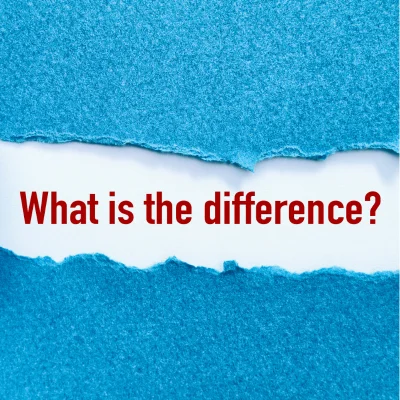1Life insurance, know one likes to talk about, most don’t fully understand it and it is shrouded in mystery. Here I will dig into it a little deeper and answer some of the most common questions I get asked. It really doesn’t have to be difficult to understand but as always people like to make themselves sound smart by over complicating a simple subject.
What I would say though is there is so many variations of policies and extras that can be added that it is a complete minefield when trying to ensure the policy you take out is right for you, and this is where an advisor can be worth their weight in gold.
What is life insurance and how does it work?
Life insurance does what it says on the tin, if you die your life insurance policy will kick in and someone somewhere will receive a payout due to your death, normally a partner or family member. It works by an insurance company looking at your previous and current health, your family’s medical history to determine if they want to offer you life insurance and if they do at what price they want to cover you for.
For example, you say you want ‘X’ amount of money to go to your partner in the event of your death in the next number of ‘X’ years and answer all the insurance company’s questions around your health. The insurance company will take all the data away and come up with a monthly price they feel is acceptable to cover you for the ‘X’ amount requested over the ‘X’ number of years.
If you agree to take the policy out and you die within the time frame of the policy the ‘X’ amount will be paid to your partner.
Life assurance vs Life insurance
There is a slight difference between life assurance vs life insurance.

Life assurance
Life assurance will usually cover the policy holder for their entire life, meaning it is a matter of when it will pay out not if.
Life insurance
Life insurance will generally only cover the policy holder for a specific term as set out in the policy, so if you outlive the term of the policy then it will never pay out.
From reading the two explanations above it will likely be apparent that life assurance tends to be far more expensive than life insurance for comparable cover.
Life insurance types
There are loads of different types and variations of life insurance, each one has its own benefits for certain situations and personal circumstances. Here I am going to cover the most common types of life insurance.
Life insurance fixed term
This is where the amount payable in the event of your death while the policy is active remains the same throughout. For example, you take out a life insurance fixed term policy with £100,000 cover in the event of your death in the next 30 years. If you die 1 year or 29 years after taking the policy out the insurance company will pay £100,000 out to whoever is entitled to it on your death.
Life insurance decreasing term

This is where the amount payable in the event of your death while the policy is active decreases each year. For example, you take out a life insurance decreasing term policy with £100,000 cover in the event of your death in the next 30 years. If you die within the first year into the policy the insurance policy will pay the full amount of £100,000 out. But if you die 29 years into the policy the insurance company is going to pay a tiny amount out as your cover amount has been decreasing each year.
Decreasing term life insurance is often used to cover the remaining balance of a mortgage in the event of your death. The cover amount will decrease inline with your outstanding mortgage balance.
Life insurance increasing term

This is the opposite of decreasing term insurance as explained above, the level of cover provided will increase throughout the term of the policy. Increasing term polices are handy where inflation may play a role and you want to mitigate inflation eroding the cover amount. These policies are typically more expensive than a comparable initial cover amount decreasing term policy.
Whole of life insurance
Whole of life insurance or life assurance as mentioned above, is a policy that lasts for the policy holders’ entire life. This means that it will pay out on the death of the policy holder. These policies can be very expensive, and premiums may be reviewed at set ages throughout the policy holder’s lifetime.
Why life insurance is important?
Life insurance is important providing you have a need for it. A large percentage of the population do have a need for it, but not everyone does. Everyone is in different situations and has different needs.
Life insurance can help give a loved one time to fully grieve and provide financial stability for them in both the short and long term.
If you have a mortgage and a loved one or children then chances are you have a need for a life insurance policy. As a minimum you would want a life insurance policy to cover the outstanding balance of your mortgage on your death. A loved one’s death is horrible, the last thing anyone wants to be worrying about during this time is money and whether they can afford to pay the mortgage and bills.
There are lots of reasons why a life insurance policy will make sense to have in place but fundamentally the objective is to take the financial worry out of the lives of the people the policy is targeted to pay out to in the event of the policy holder’s death.
What life insurance should I have?
This is impossible to say without knowing the full details of a person’s current situation and requirements. This is where professional advice is key, an advisor will look at the whole picture and can advise the best type of protection is applicable to the client.
A client may walk in wanting a life insurance policy, go through their situation with the advisor and it turns out that although a life insurance policy would be good to have, in reality they have a far greater need for income protection and this type of policy should be top of the list.
Life insurance joint or single?
A joint policy is where two individuals are covered by the same life insurance policy (typically a couple) and on the death of one of the individuals the policy will pay out to the surviving individual. Once this happens the policy is then concluded and will not pay out again on the death of the 2nd individual.
A single policy is simply where just 1 individual is covered by the policy.
A good advisor will price up a joint policy and two individual policies so an easy comparison can be made giving the client the opportunity to have the facts in front of them to make an informed decision.
Generally a joint life insurance policy is not going to be much cheaper than two individual policies for the same people, however the joint life insurance policy will only pay out once, whereas each individual policy will pay out so you can think of it as getting double the cover for marginally more in some cases.
The other consideration with a joint policy is, if a married couple took out a joint policy and subsequently separated further down the line would you still want the policy? Do you still want something potentially tying you to an ex if you keep the policy? If your health has changed since taking the joint policy out, would you be able to afford to buy a new policy?
But if you both have individual policies and seperate, you can both just take your policy and that is that sorted.
I am not saying single life insurance policies are always better, but people should be made aware of the pro’s and con’s of both policies and have the information available to make an informed decision.
Is life insurance taxable?

Yes and No.
Life insurance payouts are not subject to income tax or capital gains tax.
Life insurance pay outs may be subject to inheritance tax. To check current inheritance tax thresholds click here
If your estate on death is beyond the threshold for inheritance tax any payout you receive which is above that threshold or any proportion of the payout that takes you beyond that threshold will be liable for inheritance tax. The current rate is 40%.
Life insurance in trust
When taking out a life insurance policy you can get the policy written ‘in trust’ . What this does is keeps the policy separate from your estate meaning it will avoid any inheritance tax!
It is normally easy to get a life insurance policy written in trust and generally is also free to do so.
In simple terms the way this works is that somebody else (nominated by you) will manage the payout of the policy on your behalf (this person is known as a ‘trustee’). This is the reason why the payout will no longer be considered as part of your estate and will not be subject to inheritance tax.
You will still have influence over how and who the payout goes to and you do this through a ‘letter of wishes’ telling the trustee (nominated person) how and who gets the payout.
Another benefit of having your policy written in trust is that as the payout is not part of your estate it could potentially be distributed to the beneficiaries (the individual/s) much faster as it won’t have to go through probate.
So in short it is almost always a good idea to have a life insurance policy written in trust, so if using the services of an advisor ensure they are happy to assist you in getting your policy written in trust.
Benefits of life insurance
- Financial assistance to a loved one on your death
- Can reduce stress of a loved one on your death
- Can cover the cost of your funeral
- Peace of mind that a loved one has some level of financial stability on your death
- Can be used as part of inheritance tax planning
Life insurance is very important, it might not be everyone’s priority to have but it is something everyone should be thinking about getting and speaking to an advisor is a great start.
It is quite a morbid subject to talk about and plan for, none of us want to die and leave loved ones behind, however it is a part of life and unfortunately we all pass away at some point so having a frank conversation about the needs of others when you pass away is important.
As always if you have any questions please do get in touch and I will be happy to do my best to answer or if you want to arrange to talk about life insurance please contact me and we can arrange to have a chat.

